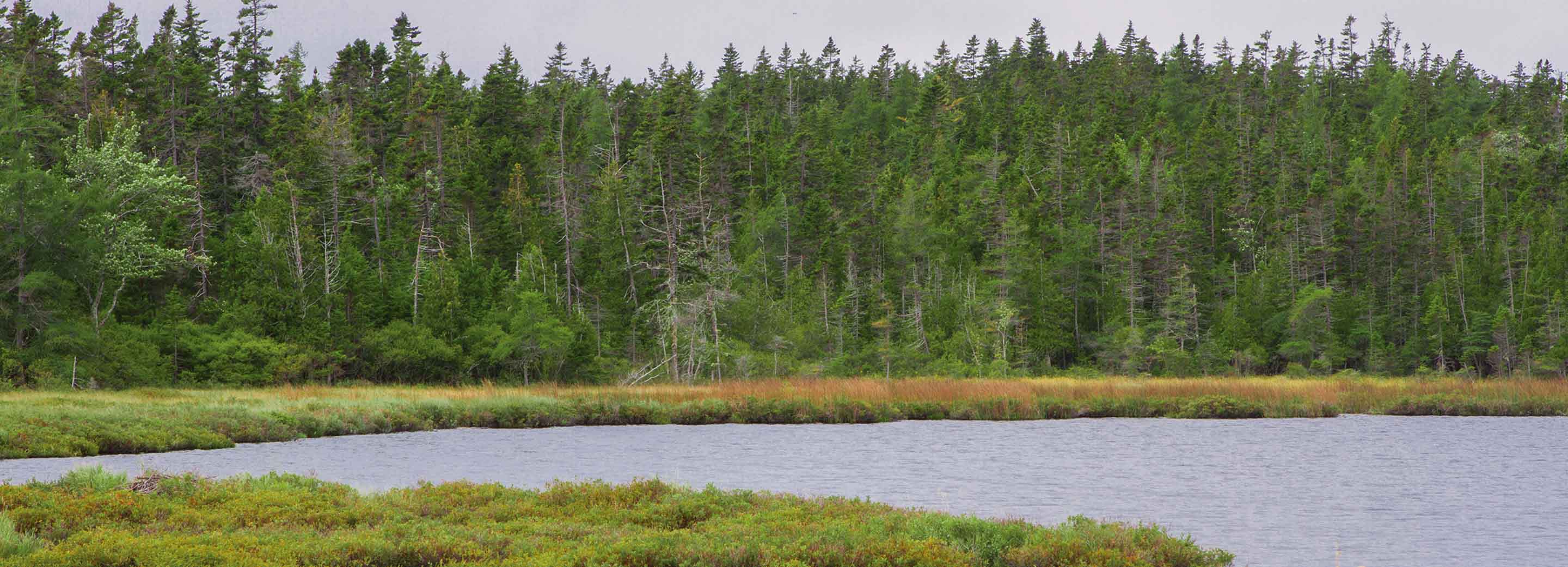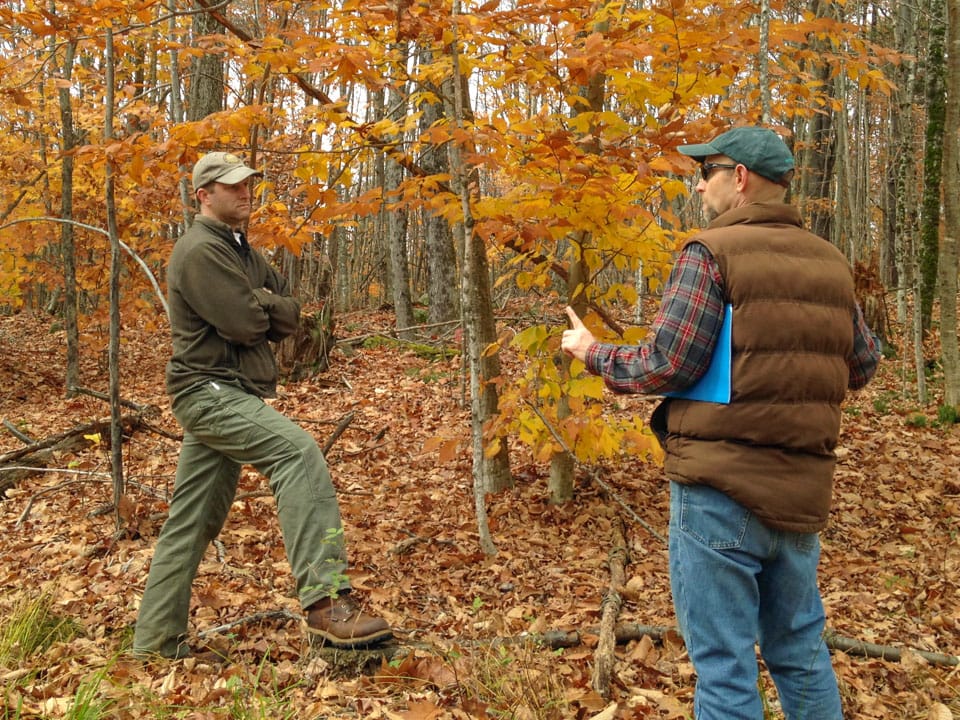The forestry sector has tremendous potential for cost-effective climate change mitigation. Manomet’s Climate Services program is working with partners from our Climate Smart Land Network (CSLN) to help realize some of this potential. The Natural Climate Solutions (NCS) work will initially identify forest management practices with the potential to increase forest carbon sequestration and storage, and evaluate the cost-benefit space associated with implementing these practices.
Manomet’s project partners own or manage millions of acres of forest, and the adoption of practices that enhance carbon sequestration at such large scales could provide significant climate benefits. However, the geographic scale of the project can also create challenges; forests managed by our partners exhibit widely varying species composition and physical structure, and management practices that are appropriate for one forest type may not be for others. Our emphasis is on the identification of cross-cutting themes, and practices that are sufficiently flexible to be tailored to different ecological and institutional contexts.
Opportunities to bring North America’s largest commercial timberland managers/owners together are relatively rare. Although rooted in biology, silviculture, finance and carbon accounting, practices emerging from the NCS project will be shaped by debate and discussion between our project partners. Two months into the Natural Climate Solutions work, the decades of experience represented by our forest management partners on this initiative is already emerging as a major asset in evaluating the feasibility of prospective strategies for increasing forest carbon storage on commercial timberland. Many of those involved in the NCS work are able to provide insights into the successes and failures of past forest management experiments oriented toward increasing carbon storage, and these lessons only reinforce the value of conversations within our network. Over the coming months we will be using this wealth of experience, and other tools, to prioritize strategies for implementation. To read more, check out our article in our spring 2020 magazine.
Identifying climate change impacts
 On May 20, Eric Walberg, Manomet Senior Program Leader, Climate Services, presented a framework for forest monitoring under conditions of global change to the Sustainable Forestry Initiative (SFI) Sounding Board. SFI is a third-party certification program that promotes sustainable forest management and fiber sourcing. Manomet was awarded funding by SFI, in 2017, to investigate the role of SFI certification in managing forests for climate change resilience. In his recent presentation to the Sounding Board, Eric described a spectrum of approaches to monitoring commercial timberland for the identification of climate change impacts. At the more rigorous end of this spectrum is the implementation of a permanent plot network, with detailed sampling protocol for assessing changes in forest structure and composition. CSLN member LandVest is beginning trials of this form of detailed sampling protocol, and LandVest Senior VP of Timberlands, Richard Carbonetti, joined Eric to describe LandVest’s monitoring approach. Manomet’s work on climate change resilience for SFI occurs in parallel with ongoing revisions to the SFI Standard, and the monitoring framework presented by Eric and Richard dovetails with discussions on incorporating climate change mitigation and adaptation into the future versions of the SFI Standards. Eric and Richard’s presentation begins at approximately 51 minutes in the video below.
On May 20, Eric Walberg, Manomet Senior Program Leader, Climate Services, presented a framework for forest monitoring under conditions of global change to the Sustainable Forestry Initiative (SFI) Sounding Board. SFI is a third-party certification program that promotes sustainable forest management and fiber sourcing. Manomet was awarded funding by SFI, in 2017, to investigate the role of SFI certification in managing forests for climate change resilience. In his recent presentation to the Sounding Board, Eric described a spectrum of approaches to monitoring commercial timberland for the identification of climate change impacts. At the more rigorous end of this spectrum is the implementation of a permanent plot network, with detailed sampling protocol for assessing changes in forest structure and composition. CSLN member LandVest is beginning trials of this form of detailed sampling protocol, and LandVest Senior VP of Timberlands, Richard Carbonetti, joined Eric to describe LandVest’s monitoring approach. Manomet’s work on climate change resilience for SFI occurs in parallel with ongoing revisions to the SFI Standard, and the monitoring framework presented by Eric and Richard dovetails with discussions on incorporating climate change mitigation and adaptation into the future versions of the SFI Standards. Eric and Richard’s presentation begins at approximately 51 minutes in the video below.





 Back to all
Back to all

